| 1. Liver cancer |
| Liver cancer is a daunting diagnosis, but understanding its nuances can help navigate the journey. This guide delves into liver cancer, particularly hepatocellular carcinoma (HCC), exploring the best treatments, what to expect at stage 4, and the prognosis for metastatic liver cancer. |
| 2. Understanding Liver Cancer |
| 2.1. What is Liver Cancer? |
| Liver sickness is the uncontrolled improvement of strange cells in the liver. It’s critical because the liver plays a vital role in detoxification, digestion, and metabolism. |
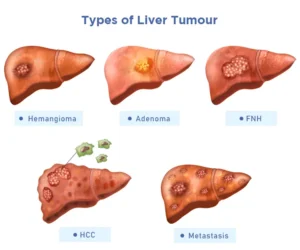
hepatocellular carcinoma
best treatment for stage 4 liver cancer
liver tumor treatment
types of liver cancer
stage 4 metastatic liver cancer life expectancy
stage 4 liver cancer what to expect
stage 4 liver cancer
liver cancer prognosis
best liver cancer treatment in world
| 2.2. Types of Liver Cancer |
| 2.2.1. Hepatocellular Carcinoma |
| HCC is the most common type of primary liver cancer, originating in the hepatocytes. It’s often linked to chronic liver diseases like hepatitis and cirrhosis. |
| 2.2.2. Intrahepatic Cholangiocarcinoma |
| This cancer starts in the bile ducts within the liver and is less common but equally serious. |
| 2.2.3. Other Rare Types |
| Other forms include angiosarcoma and hepatoblastoma, which are quite rare and typically have different treatment protocols. |
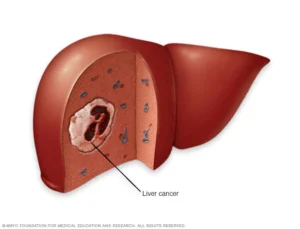
hepatocellular carcinoma
best treatment for stage 4 liver cancer
liver tumor treatment
types of liver cancer
stage 4 metastatic liver cancer life expectancy
stage 4 liver cancer what to expect
stage 4 liver cancer
liver cancer prognosis
best liver cancer treatment in world
| 3. Hepatocellular carcinoma |
| 3.1. Causes and Risk Factors |
| HCC is often caused by chronic hepatitis B or C infections, excessive alcohol consumption, and non-alcoholic fatty liver disease (NAFLD). Genetics and environmental toxins also play a role. |
| 3.2. Symptoms of HCC |
| Early-stage HCC might be asymptomatic. As it progresses, symptoms include jaundice, abdominal pain, unexplained weight loss, and swelling. |
| 3.3. Diagnosis and Staging |
| Diagnosis involves imaging tests like CT scans, MRIs, and biopsies. Staging ranges from I (localized) to IV (metastatic), with stage 4 indicating spread to other body parts. |
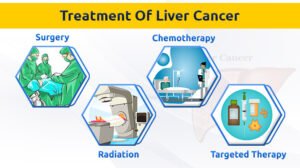
hepatocellular carcinoma
best treatment for stage 4 liver cancer
liver tumor treatment
types of liver cancer
stage 4 metastatic liver cancer life expectancy
stage 4 liver cancer what to expect
stage 4 liver cancer
liver cancer prognosis
best liver cancer treatment in world
| 4. Treatment Options for Liver Cancer |
| 4.1. Surgical Treatments |
| 4.1.1. Liver Resection |
| Surgical removal of the tumor can be effective if the cancer is localized and the liver is otherwise healthy. |
| 4.1.2. Liver Transplantation |
| This is suitable for patients with early-stage cancer and severe liver damage. It offers a chance for a cure by replacing the diseased liver with a healthy one. |
| 4.2. Non-Surgical Treatments |
| 4.2.1. Ablation Therapy |
| Ablation uses heat or cold to destroy cancer cells and is less invasive than surgery. |
| 4.2.2. Radiation Therapy |
| Radiation can target cancer cells in specific areas, often used when surgery isn’t an option. |
| 4.2.3. Chemotherapy |
| While systemic, chemotherapy can slow the growth and spread of liver cancer, though it’s less effective for HCC than other cancers. |
| 4.2.4. Targeted Therapy |
| Drugs like sorafenib target specific aspects of cancer cells, offering a more focused treatment with potentially fewer side effects. |
| 4.2.5. Immunotherapy |
| This treatment boosts the body’s immune system to fight cancer. Drugs like nivolumab have shown promise in treating advanced HCC. |
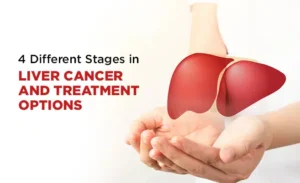
hepatocellular carcinoma
best treatment for stage 4 liver cancer
liver tumor treatment
types of liver cancer
stage 4 metastatic liver cancer life expectancy
stage 4 liver cancer what to expect
stage 4 liver cancer
liver cancer prognosis
best liver cancer treatment in world
| 5. Best Treatment for Stage 4 Liver Cancer |
| 5.1. Treatment Challenges |
| Stage 4 liver cancer is challenging due to its spread (metastasis). Treatment aims to control symptoms and prolong life rather than cure. |
| 5.2. Multimodal Approaches |
| Combining treatments—like targeted therapy, immunotherapy, and palliative care—can improve quality of life and survival rates. Customized treatment plans are fundamental. |
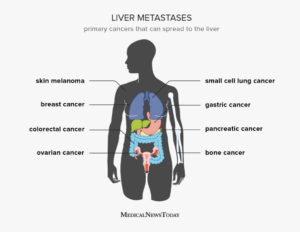
hepatocellular carcinoma
best treatment for stage 4 liver cancer
liver tumor treatment
types of liver cancer
stage 4 metastatic liver cancer life expectancy
stage 4 liver cancer what to expect
stage 4 liver cancer
liver cancer prognosis
best liver cancer treatment in world
| 6. Prognosis for Stage 4 Metastatic Liver Cancer |
| 6.1. Life Expectancy |
| Life expectancy for stage 4 liver cancer varies. Median survival ranges from 6 months to 2 years, depending on many factors, including overall health and response to treatment. |
| 6.2. Factors Affecting Prognosis |
| Prognosis depends on factors like tumor size, number of tumors, liver function, and patient’s overall health. |
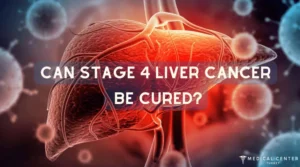
hepatocellular carcinoma
best treatment for stage 4 liver cancer
liver tumor treatment
types of liver cancer
stage 4 metastatic liver cancer life expectancy
stage 4 liver cancer what to expect
stage 4 liver cancer
liver cancer prognosis
best liver cancer treatment in world
| 7. What to Expect with Stage 4 Liver Cancer |
| 7.1. Physical Symptoms |
| Expect symptoms like severe pain, jaundice, and ascites (fluid buildup in the abdomen). Palliative care focuses on managing these symptoms. |
| 7.2. Emotional and Mental Impact |
| A diagnosis of stage 4 cancer can be emotionally overwhelming. Support groups, counseling, and mental health services are crucial. |
| 7.3. Support and Palliative Care |
| Palliative care teams provide holistic support, addressing physical, emotional, and spiritual needs to improve quality of life. |
| 8. Conclusion |
| Navigating liver cancer, especially at stage 4, is daunting. However, understanding the disease, exploring treatment options, and seeking comprehensive care can make a significant difference. With ongoing research and personalized treatment plans, there’s hope for better outcomes and improved quality of life. |



